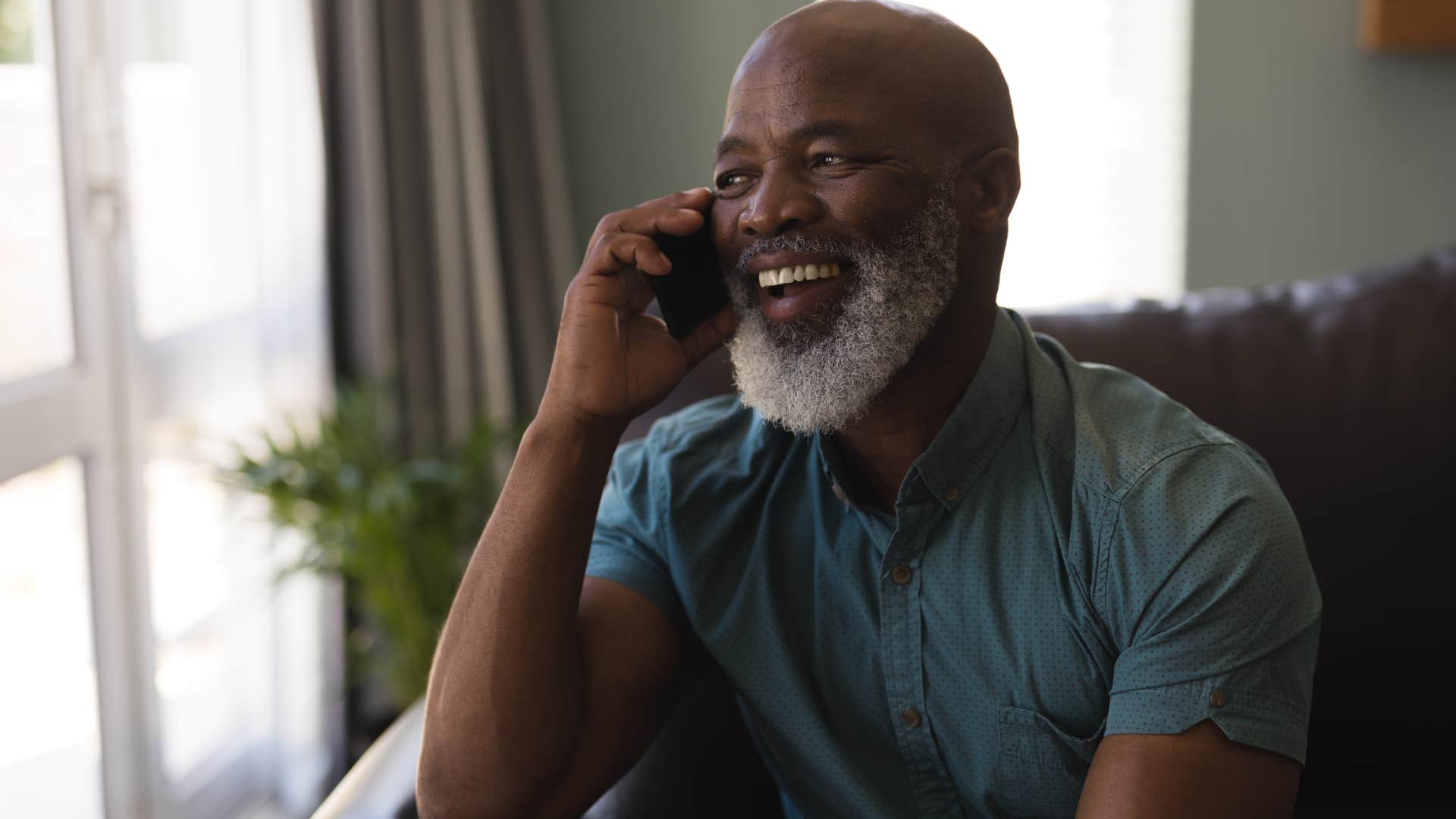11 Things People Only Do If They Have Someone In Their Life That Constantly Criticizes Them
Constantly being told you're not good enough or you do everything wrong takes an extreme toll in more ways than one.
 Evgeny Hmur | Shutterstock.com
Evgeny Hmur | Shutterstock.com When critical people hyperfocus on specific targets, a common tendency in narcissistic and deeply insecure people, there’s often several things people only do if they have someone in their life that constantly criticizes them that manifests as a result of their behaviors. From behavioral changes, to internal emotional struggles, and defensive coping mechanisms, the targets of critical people often bear the burden of insecurity without strict boundaries and demands for respect.
Experts from Modern Psychiatry and Wellness state that people who are constantly critical of others are often deeply insecure, projecting their own misguided beliefs about themselves onto others to self-soothe and protect their social image. While their criticisms may be subtle, with hurtful comments or interruptions in conversation, they can have larger, more impactful consequences on their relationships and self-esteem.
Here are 11 things people only do if they have someone in their life that constantly criticizes them
1. Over-apologize
 Antoniodiaz | Shutterstock.com
Antoniodiaz | Shutterstock.com
Many people who battle constant criticism will over-apologize to keep the peace in their relationships. Not only does this tendency lead people to suppress their own needs and emotions, it often creates an unbalanced dynamic where one person is consistently taking the blame and never being reassured.
While it might seem counterintuitive, emotional suppression and an innate desire to please people-please can cultivate a false sense of security for people who struggle with being overly criticized.
They fear harsh critique and judgment more than anything, so actively avoiding it can feel reassuring.
2. Try to solve everyone else’s problems
 SynthEx | Shutterstock.com
SynthEx | Shutterstock.com
Being constantly criticized often causes people to adopt an insecure mentality, where their own self-esteem and confidence is intertwined with other people’s perceptions of them.
When you hyper-focused on how one peron feels, you're often left disregarding our own needs or the stability of our relationships with others in order to people-please the person in your life who constantly criticizes us.
Being a mediator and problem-solver for everyone in their lives is typically one of the things only people do if they have someone in their life that constantly criticizes them, because they feel a pressure to please that person and avoid situations that could paint them out to be incompetent or unreliable.
3. Get defensive easily
 simona pilolla 2 | Shutterstock.com
simona pilolla 2 | Shutterstock.com
Whether it’s a simple conversation or constructive criticism, many people who grew up with or are currently constantly dealing with a critical person struggle to accept any kind of feedback. In the face of conflict directed at their image or character, they get defensive, avoiding any kind of situation where they might have their self-esteem eroded or their character misjudged.
Considering insecurity and fear are the biggest drivers behind defensiveness, many people who’ve been constantly judged struggle with open communication in the face of this anxiety.
Instead of advocating for themselves, these people fall victim to people-pleasing and defensiveness in ways that prioritize other people’s needs above their own.
4. Over-explain themselves
 DimaBerlin | Shutterstock.com
DimaBerlin | Shutterstock.com
Dr. Caroline Leaf suggests that the tendency for people to over-explain themselves to others is often a trauma response in people who were constantly made to feel at fault growing up.
Always punished or invalidated for doing something wrong by a critical person in their life, many insecure people tend to over-explain themselves in conversation to avoid being perceived mistakenly or misunderstood.
They feel obligated to explain, even to people they don’t necessarily know well, whether it’s a personal choice they made, a boundary they’re re-asserting, or a lifestyle decision,
5. Worry about other people’s judgments during conversations
 Fizkes | Shutterstock.com
Fizkes | Shutterstock.com
Whether it’s rooted in social anxiety or a fear of criticism, being afraid of other people’s judgments during conversations is a common experience for many people who have someone in their life that constantly criticizes them.
They look to other people to reassure themselves of their worth, leaving their security, comfort, and emotional help in the hands of people who may not care about their well-being.
This kind of people-pleasing and validation-seeking behavior also tends to further isolate insecure people, as they’re willing to do anything to prove themselves in conversations, even if it means curating an inflated version of themselves, talking over others, or name-dropping to feel more important.
6. Set unrealistically high expectations for themselves
 PeopleImages.com - Yuri A | Shutterstock.com
PeopleImages.com - Yuri A | Shutterstock.com
While high expectations can be empowering and motivating for the average person, people who’ve been constantly criticized throughout their lives often struggle with trying to prove themselves to others. With lofty unrealistic expectations, they can gain the approval, validation, and attention from others that they’re yearning for, oftentimes leaving no room for disappointment.
However, inevitably when they can’t achieve their goals, the negative and uncomfortable emotions they experience only feed into a toxic cycle of low self-esteem and external validation — starting the process back over again.
To break free from this cycle, you have to start looking inward, making space for self-care and affirmative practices that build up your self-esteem, rather than leaving it for other people to support.
7. Judge others through a hyper-critical lens
 MDV Edwards | Shutterstock.com
MDV Edwards | Shutterstock.com
Many insecure people project their insecurities and internal struggles onto others to both self-soothe and communicate with others from a misguided perspective, according to experts from the Private Therapy Clinic.
Fueled by the shame, anxiety, and feelings of unworthiness that a hyper-critical person in their life sparked, these people find comfort in sharing their insecurities with others, whether they’re conscious they’re doing so or not.
8. Struggle to accept compliments
 Ekateryna Zubal | Shutterstock.com
Ekateryna Zubal | Shutterstock.com
For people struggling with low self-esteem as a result of a relationship with someone in their life who constantly criticizes them, accepting compliments and praise can be incredibly difficult.
A study published in the Journal of Experimental Social Psychology argues that compliments spark feelings of anxiety in insecure people, as their praise misaligns with their negative inner critic, sparking an unsettling feeling of being misunderstood.
Not only are compliments destabilizing rather than reassuring in these situations, they can be disorienting for people struggling with insecurity — causing them to sabotage healthy connections with genuinely supportive, loving people.
9. Isolate themselves during conflict
 DimaBerlin | Shutterstock.com
DimaBerlin | Shutterstock.com
While people-pleasing is one of the things people only do if they have someone in their life that constantly criticizes them, many people struggle with direct conflict resolution in a healthy manner. Instead of having an open conversation about their emotions and working toward solutions during an argument, they tend to focus all their energy on soothing the other person — letting their own needs get swept under the rug.
This disregard for their own needs and general isolation in relationships not only builds resentment, which can take a significant toll on their mental and physical health.
A study published in Trends in Cognitive Sciences found that social isolation as a result of loneliness and resentment can negatively affect the brain’s executive functioning, making general skills like attention, memory, and emotional regulation more difficult to properly execute and sustain.
10. People-please
 Wavebreakmedia | Shutterstock.com
Wavebreakmedia | Shutterstock.com
According to psychology educator Kendra Cherry, people-pleasers committed to keeping the peace in their relationships are often fueled by a deep-seated need for external validation and security.
Their low self-esteem, cultivated by having their needs go consistently unmet or being overly criticized by others, leads people-pleasers to seek attention, validation, and security through putting other people’s needs above their own, oftentimes at the expense of their own health.
Without the confidence or self-advocacy skills to assert their own boundaries and look out for their own wellbeing, they’re motivated by a misguided truth that keeping the peace, suppressing their own discomfort, and being the mediator in their relationships will cultivate a sense of security in their lives.
11. Avoid high-pressure situations and challenges
 Fizkes | Shutterstock.com
Fizkes | Shutterstock.com
For people who’ve dealt with constant criticism from someone in their life, navigating high pressure situations and conflicts can be difficult. Not only do they hold themselves to unrealistically high standards, they’ve often been pressured into a perfectionist attitude where they’re not comfortable with their perceived flaws on mistakes.
Instead of putting themselves in situations where they could potentially “fail” or disappoint others, they avoid these stressful situations, sometimes at the expense of their personal growth or relationships.
Without being challenge, they often remain stagnant, lingering in their comfort zone with an innate sense of anxiety that sabotages excitement and growth in their lives.
Zayda Slabbekoorn is a staff writer with a bachelor’s degree in social relations & policy and gender studies who focuses on psychology, relationships, self-help, and human interest stories.

